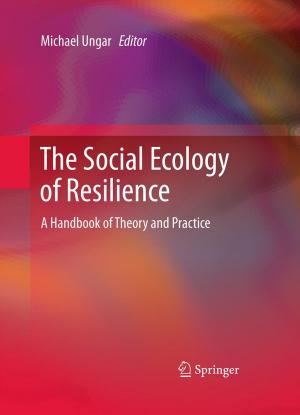Integrating Ecology and Poverty Reduction
Ecological Dimensions
Nonfiction, Science & Nature, Technology, Environmental, Science, Biological Sciences, Environmental Science, Nature| Author: | ISBN: | 9781441906335 | |
| Publisher: | Springer New York | Publication: | February 15, 2012 |
| Imprint: | Springer | Language: | English |
| Author: | |
| ISBN: | 9781441906335 |
| Publisher: | Springer New York |
| Publication: | February 15, 2012 |
| Imprint: | Springer |
| Language: | English |
In the past, the science of ecology has frequently been excluded from the development agenda for various reasons. Increasingly however there has been a renewed interest in finding more ecologically sustainable means of development that have required a strong foundation in ecological knowledge (for example EcoAgriculture Partnerships, EcoHealth presented at ESA, and EcoNutrition proposed by Deckelbaum et al). Each of these examples has already taken the critical first step at integrating ecological knowledge with agriculture, health and nutrition, respectively. However, this is only the first step; more attention needs to be placed not only on the role that two fields can play towards poverty alleviation, but on the role of a truly integrated, interdisciplinary approach towards development goals that is firmly grounded in ecological understanding. We feel that a critical look at what ecology can and cannot provide to the development agenda, in light of the Millennium Development goals, is timely and crucial. The introduction and the final section of the book will then integrate the lessons and principles outlined in each of the chapters. All chapter authors will be heavily encouraged to focus on how their sub-discipline in ecology impacts overall human well-being and environmental sustainability.
In the past, the science of ecology has frequently been excluded from the development agenda for various reasons. Increasingly however there has been a renewed interest in finding more ecologically sustainable means of development that have required a strong foundation in ecological knowledge (for example EcoAgriculture Partnerships, EcoHealth presented at ESA, and EcoNutrition proposed by Deckelbaum et al). Each of these examples has already taken the critical first step at integrating ecological knowledge with agriculture, health and nutrition, respectively. However, this is only the first step; more attention needs to be placed not only on the role that two fields can play towards poverty alleviation, but on the role of a truly integrated, interdisciplinary approach towards development goals that is firmly grounded in ecological understanding. We feel that a critical look at what ecology can and cannot provide to the development agenda, in light of the Millennium Development goals, is timely and crucial. The introduction and the final section of the book will then integrate the lessons and principles outlined in each of the chapters. All chapter authors will be heavily encouraged to focus on how their sub-discipline in ecology impacts overall human well-being and environmental sustainability.















